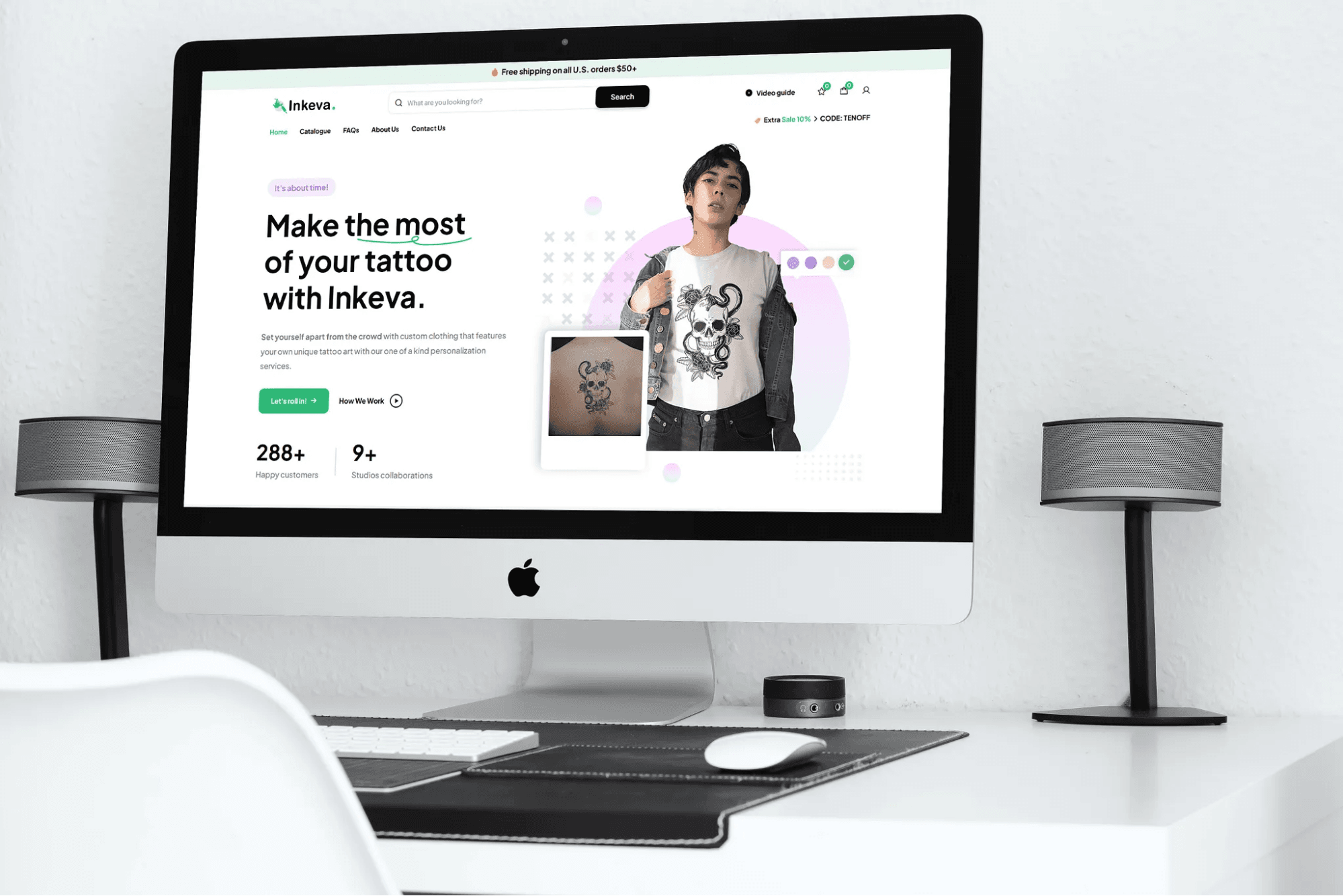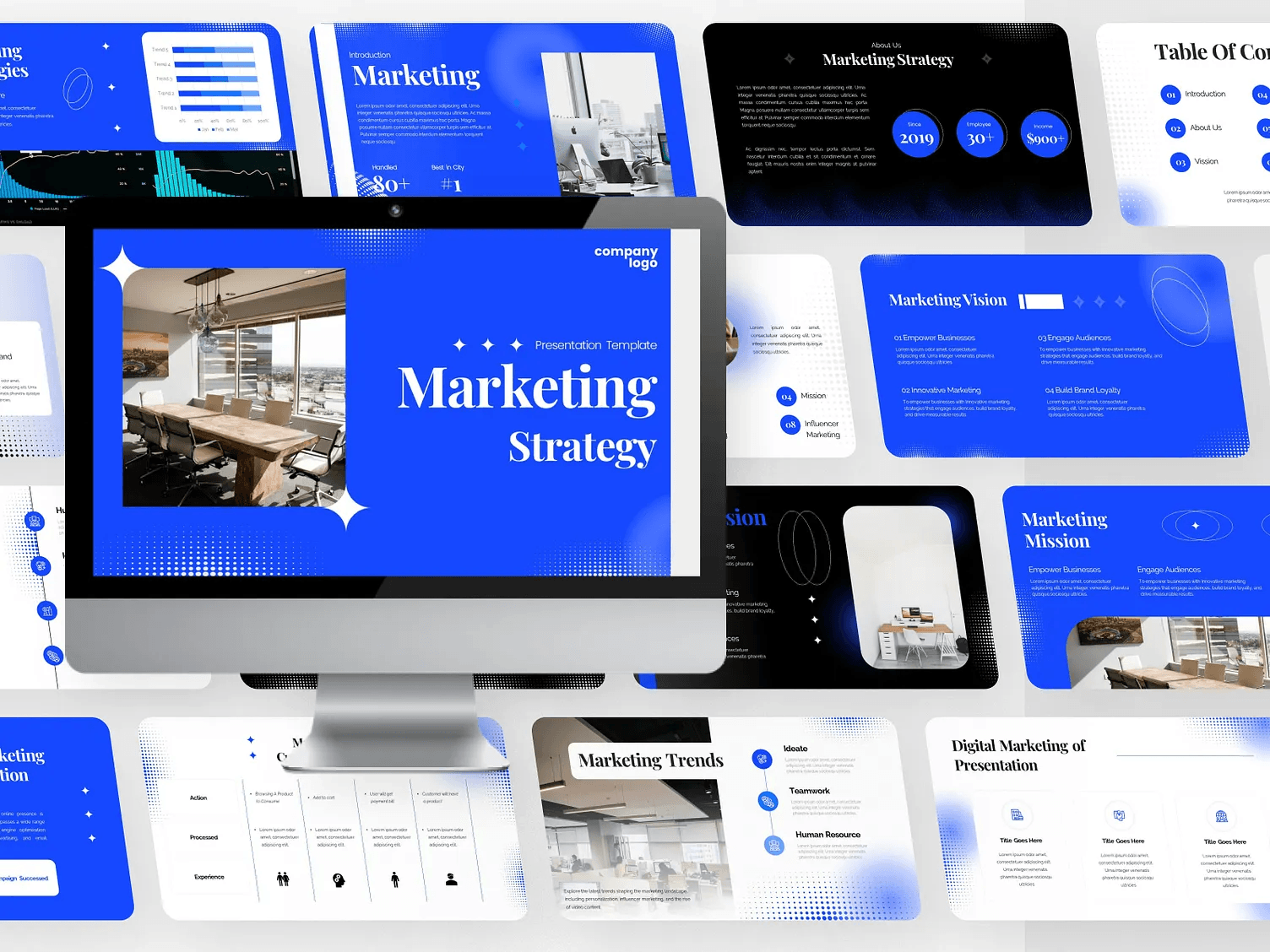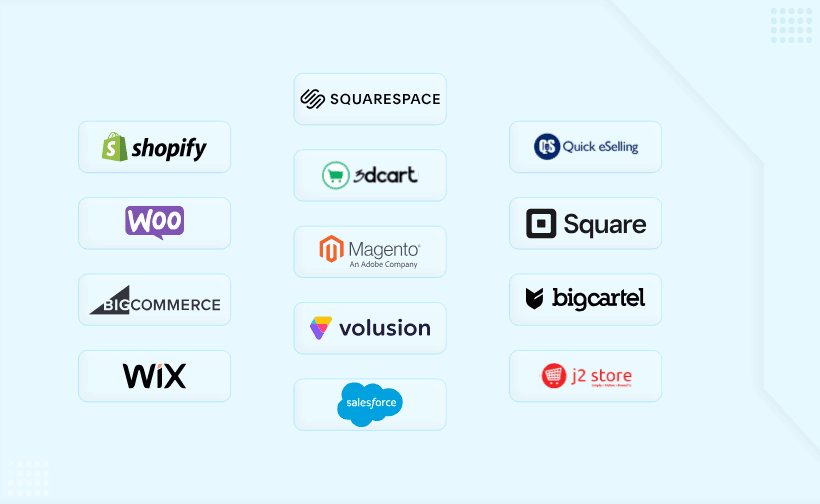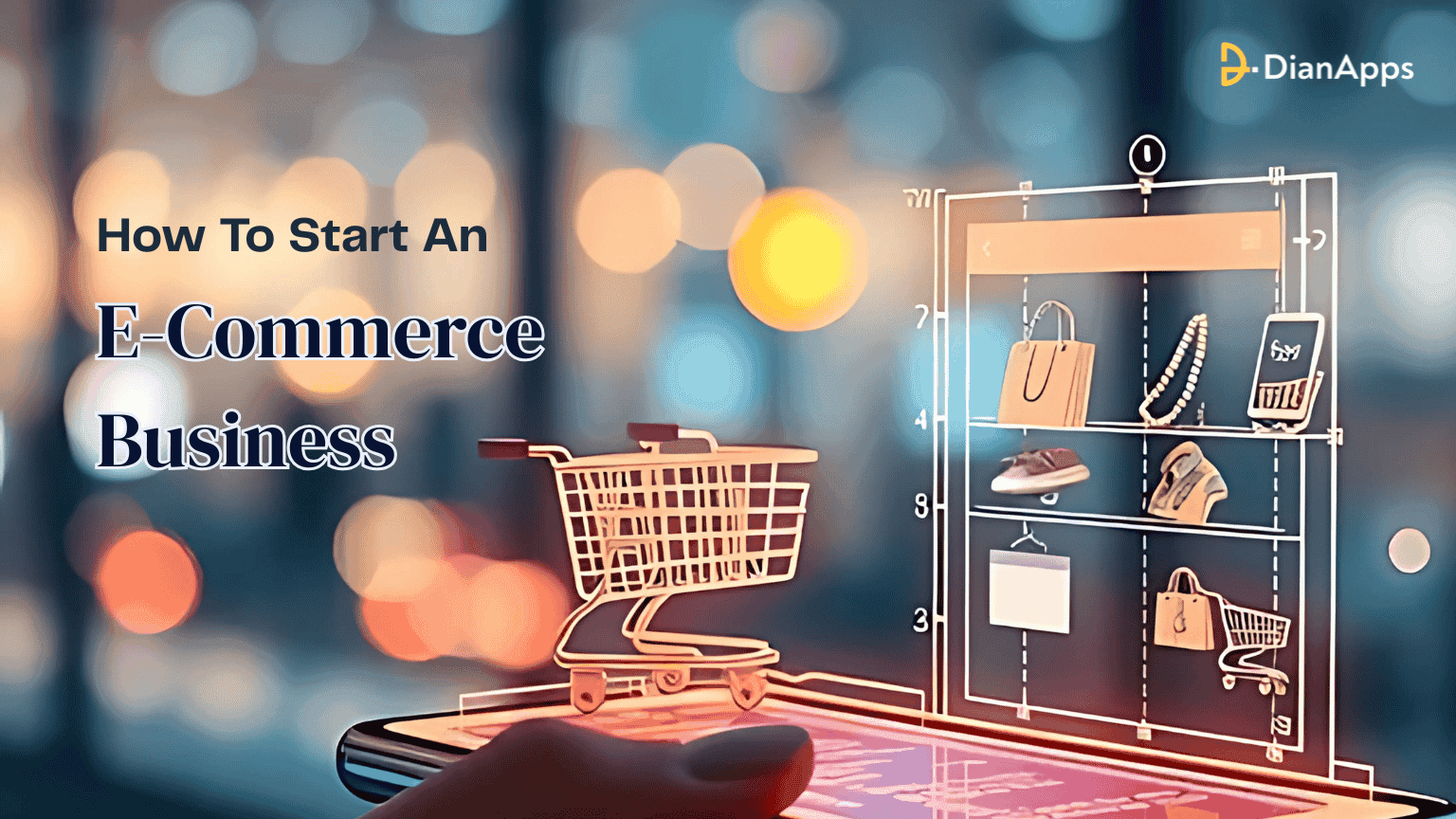Dreaming about turning your million-dollar idea into an eCommerce business? You’re not alone. With online shopping at its peak, there’s never been a better time to start an e-commerce business. But where do you begin?
With nearly 30.7 million e-commerce sites on the internet, and half of them struggling to showcase their products/services, finding the ultimate key to success is like “finding your way in the dark”: challenging, but much easier with the right guidance.
The journey isn’t just about setting up a website and waiting for sales to come in. Many entrepreneurs struggle with key challenges that can make or break their success.
- Choosing the right business model
- Standing out in a competitive market
- Managing website development & technology
- Driving traffic and increasing conversions
- Handling logistics and customer service
These hurdles often leave business owners with a lack of confidence to survive in the rapidly changing e-commerce landscape, resulting in either backing out or failing tremendously.
A great idea alone isn’t enough, you need the right plan, the right tools, and expert guidance.
As they say, every challenge has a solution; what we need to do now is focus on the right strategies to overcome them.
- A structured approach simplifies decision-making and sets a strong foundation.
- Partnering with an experienced e-commerce app development company ensures a seamless and high-performing website.
- Smart marketing strategies help attract customers and boost sales.
- Efficient logistics and customer support create a smooth shopping experience.
Starting an e-commerce business in 2025 is all about strategy. In this blog, we’ll take you through each step, from choosing the right model to building, marketing, and scaling your store.
Let’s get started and turn your vision into reality!
How to Set Up an E-commerce Business? Stepwise Process
Here’s the stepwise guide to starting a profitable online store:
Identify Your Niche and Business Model
Before jumping into website development, define what you’re selling and who your target audience is.
- Choose a profitable niche: Focus on products with high demand and less competition. Examples include eco-friendly products, personalized gifts, or AI-powered gadgets.
- Decide on a business model: Will you operate a dropshipping store, private label, wholesale, or a subscription-based service?
- Conduct competitor analysis: Study successful businesses in your niche and find gaps you can fill.
Example: If you’re launching a fashion e-commerce store, consider specializing in sustainable clothing to attract environmentally conscious consumers.
Conduct Market Research and Validate Your Idea
Once you’ve identified your niche, research your market to ensure demand.
- Use tools like Google Trends, SEMrush, and Ahrefs to analyze search volume and competition.
- Create customer personas to understand your audience’s needs, preferences, and pain points.
- Test your idea by running small social media campaigns or using platforms like Kickstarter to gauge interest.
Example: If you plan to sell smart home devices, check if there’s a rising trend for AI-powered home security products.
Register Your Business and Handle Legal Formalities
To operate legally and build credibility, complete the necessary business registrations.
- Choose a business structure: Sole proprietorship, LLC, or corporation.
- Register your business and get necessary licenses: Check with your local authorities.
- Set up a business bank account and get an EIN (Employer Identification Number) for tax purposes.
Example: If you’re starting an e-commerce store in the USA, platforms like LegalZoom can help with business registration.
Choose the Right E-commerce Platform
Your website is the backbone of your online store, so picking the right eCommerce development company or platform is crucial.
- Top platforms include Shopify, WooCommerce, Magento, and BigCommerce.
- Ensure mobile responsiveness and scalability: Your store must grow with your business.
- Work with an experienced e-commerce development company to customize your website for a seamless shopping experience.
Example: If you expect high traffic, consider Magento or Shopify Plus for advanced e-commerce features.
Develop Your E-commerce Website
Your website should be fast, user-friendly, and conversion-optimized.
- Pick a domain name: Keep it short, memorable, and brandable.
- Design a professional website: Ensure intuitive navigation, fast loading speeds, and a mobile-friendly design.
- Integrate essential features: Payment gateways, product filters, live chat, and a secure checkout process.
Example: Amazon’s success comes from an intuitive interface, AI-driven recommendations, and one-click checkout.
Recommended Read: How to Change & Boost your E-Commerce Store with Mesmerizing Designing
Source or Manufacture Your Products
You need a reliable source for your products to maintain quality and profitability.
- Find trustworthy suppliers: Use platforms like Alibaba, SaleHoo, or work with local manufacturers.
- Consider dropshipping: If you don’t want to hold inventory, partner with suppliers who ship directly to customers.
- Ensure product quality: Order samples before listing products to avoid returns and complaints.
Example: Printful allows you to start a print-on-demand business with no upfront inventory costs.

Set Up Payment and Shipping Methods
A smooth checkout process increases customer trust and reduces cart abandonment.
- Offer multiple payment options: Credit cards, PayPal, Apple Pay, and Buy Now Pay Later (BNPL).
- Optimize your shipping strategy: Provide free shipping, real-time tracking, and easy returns.
- Partner with reliable shipping providers: UPS, FedEx, or local courier services.
Example: Amazon Prime’s success is partly due to its fast and free shipping model, which keeps customers loyal.
Implement a Strong Marketing Strategy
Driving traffic and converting visitors into customers is key to success.
- SEO Optimization: Use keyword-rich product descriptions, meta tags, and blogs to rank higher on Google.
- Social Media Marketing: Promote your store on Instagram, Facebook, TikTok, and LinkedIn.
- Email Marketing: Build an email list and send targeted offers, newsletters, and abandoned cart reminders.
- Paid Ads: Run Google Ads, Facebook Ads, and influencer collaborations to boost visibility.
Example: A beauty brand using TikTok trends and influencer marketing can generate massive sales.
Provide Excellent Customer Service
Happy customers lead to repeat business and positive word-of-mouth marketing.
- Offer 24/7 support: Live chat, email, and chatbot assistance.
- Respond to customer queries quickly: Solve issues before they escalate.
- Encourage reviews and testimonials: Positive feedback builds trust and boosts conversions.
Example: Zappos built its reputation by offering exceptional customer service and free returns.
Analyze, Optimize, and Scale Your Business
Once your eCommerce business is live, continuous improvement is key.
- Use analytics tools: Google Analytics, Shopify Reports, and Hotjar to track user behavior.
- A/B test website elements: Optimize product pages, checkout processes, and CTAs.
- Expand product offerings and explore new markets: Consider international shipping and localization.
Example: If a product is selling well, introduce variations or complementary items to increase revenue.
Recommended Read: How E-Commerce Apps Are Shaping the Future of Retail
Key Tips for starting an e-commerce Business
Now that you have started an e-commerce business, it’s time to get on track and read these key tips to stay focused and reach the target goal to succeed in this rapidly growing digital landscape.
Do Not Consider First-Year Profitability
The success of an e-commerce business is not measured by profitability in the first year. Be sure to give your business a timeframe of around 18 to 24 months to get on track. The first year of the brand owner must be dedicated to reiterating, testing, and reinvesting sales back into your business.
Know Your Target Audience
Being an e-commerce business, it is important to invest time in developing or sourcing products, but with this, it is also important to spend the majority of your time attracting customer attention. The challenge? Business owners want to showcase their products to the customers who are actually interested in their products. This can be possible by understanding the target audience.
Provide a Superior User Experience
The number of e-commerce businesses is continuously expanding, so to compete in this growing market, ensure that to select an appropriate e-commerce platform that aligns with your unique business model.
While selecting a platform, remember to prioritize a user-friendly design with high-quality imagery, robust security measures, and effective product descriptions to provide an intuitive user experience.
Ensure to Sell a Product in Demand
Make sure to sell or create products that are in high demand. Look at the top e-commerce businesses, including Bombas, Tushy, and Allbirds, you will notice that they sell products that are in trend or are highly demanded by users.
According to the CEO of Upsell, Eric Even Haim, the next products launched don’t need to be innovative, and you need to focus on bringing innovative mobile app development market trends where customers are underserved.
Plan for scalability
Leverage scalable technologies such as Magento’s e-commerce platform to anticipate future growth.
The infrastructure of the brand must be intuitive so it can easily accommodate growing user demand with complete efficiency.
Experiment with advertising and marketing

The success of the brand is highly dependent on the marketing strategies. Be sure to leverage the best marketing strategies to understand your target market’s interest areas and what type of content attracts them.
Moreover, to attract user attention, you can try different marketing tactics such as:
- Instagram ads
- Affiliate Marketing
- Organic Search
- Loyalty Programs
- Website pop-ups
- Content Marketing
- Check out upsells and cross-sells
The key to success lies in experimenting with different strategies to avoid falling into any assumptions related to your target market that could end up affecting your business growth.
According to the CEO of the famous mattress company Nolah, in the starting phase business should be open to getting things wrong, as this is the best way to find the best possible strategy for your brand. Consider using data to create more informative campaigns that drive profit and traffic.
Moreover, this strategy can also help you to refine your website features based on user behaviour.
Invest in Outreach and Link Building
Once your e-commerce business is launched in the market, ensure that to have a well-defined plan for outreach and link building to enhance SEO rankings in Google.
According to a UK-based SEO strategist, the sooner you start building links on your website, the earlier your website will be recognized by search engines.
Links are used to build your brand authority, as links from good authority sources are considered a vote of confidence for search engines. That’s why many businesses prefer partnering with the best white hat link building agency to ensure all backlinks are earned ethically and effectively. Due to this, most SEO consultants suggest adopting link building in the early stage of brand establishment. This will allow your business to rank higher in Google, make more sales, and earn more organic traffic.
List of the Best E-commerce Platforms
Planning to start an e-commerce business but confused about which platform to choose? Here, we have listed some popular e-commerce platforms that will help you to make the best e-commerce platform to succeed in this growing landscape.

Shopify
Shopify is a widely used cloud-based platform that allows businesses to manage and create their online stores. This is one of the most user-friendly and all-inclusive platforms that provides multiple customization options to users. It provides multiple subscription options you can choose from depending on your business needs.
SquareSpace
It is a modernized platform that allows the building of websites with modern templates, offering multiple e-commerce capabilities. This platform is user-friendly, but it doesn’t provide as many customizable options as Shopify.
WooCommerce
Looking to sell products/services through a WordPress site, ensure to integrate an open-source WooCommerce plug-in. This plug-in is completely free of cost and offers a wide range of e-commerce tools. This is considered the best for entrepreneurs with prior technical experience.
Magento
Magento is considered the best open-source e-commerce platform if you are tech-savvy. It allows businesses to customize every element of their online store.
Recommended Read: Magento, Shopify or WooCommerce? Which is the Best E-commerce Platform?
Some Profitable E-commerce Business Ideas

You must have surely heard most people talking about starting a business. Why do most people want to start a business, or what’s the first business idea that comes to their mind? Half of the population thinks about starting an e-commerce business due to the flexibility it offers and the potential to generate a large amount of revenue. However, they acknowledge some challenges, such as high competition and a need for a strong business plan.
Here are some most profitable business plans that business owners often consider:
- Start a dropshipping business
- Sell handmade items
- Sell Outdoor furniture
- Produce private label beauty products
- Flip children’s toys
- Write and sell books
- Sell niche subscription boxes
- Create print-on-demand merchandise
- Start a clothing line
- Sell on the marketplace
- Teach online courses
- Start a 3D-printed accessories store
- Sell AR and VR Educational tools
- Open an online thrift store
- Create eco-friendly versions of popular products
- Become an affiliate marketer
- Refurbish smart home products
- Sell personalized gifts
Start A Successful eCommerce Business With DianApps
Not sure where to begin with your e-commerce business?
DianApps, a leading mobile app development company, has an experienced team of marketing professionals, website designers, app developers, quality analysts, and senior product owners.
Innovative development or marketing solutions provided by DianApps help grow business online, with our key solutions like:
- Custom website development
- eCommerce web design and development
- Digital Marketing Services
- Business growth and startup consulting
We even have a dedicated digital strategy that ensures to analysis of the growth factors of your business and ensures the growth of every business.
With this, we always consider:
- Project ownership
- Transparency
- Measurable results
Want to learn more about starting an e-commerce business? Be sure to get in touch with our expert development team.










Leave a Comment
Your email address will not be published. Required fields are marked *